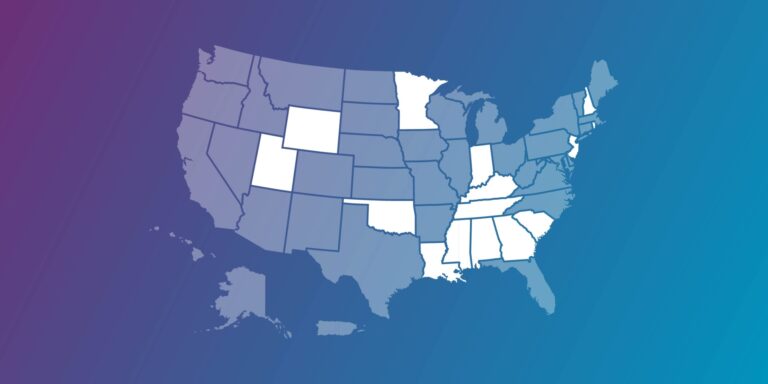BRIEF: School Choice in the States – June 2021
LEGISLATION
Arizona
The Arizona House and Senate passed SB 1828, a bill that expanded the tax credits available via Lexie’s Law for Disabled and Displaced Students by $1 million. Additionally, the legislature made a number of important technical modifications to Arizona’s Empowerment Scholarship Account program that will provide families with even greater freedom and flexibility to customize their children’s education. The Goldwater Institute blog provides a good summary of the changes. Gov.Doug Ducey is expected to sign both bills soon.
New Hampshire
This month, lawmakers in both legislative chambers approved the committee of conference report for House Bill 2 by a vote of 198-181 in the House and 14-10 in the Senate. This measure included education freedom accounts (EFAs), a form of education savings accounts. Gov. Chris Sununu signed the legislation enacting into law one of the nation’s most robust educational choice programs.
The Education Freedom Account Program allows for families with a household income below 300 percent of the federal poverty level to be eligible for an account. EFAs would let families use a portion of the state funding (on average $4,600 per account) to pay for a variety of educational expenses. Uses include private school tuition, tutoring, textbooks, educational therapy and more.
Ohio
Gove. Mike DeWine signed HB 110, a bill that increases funding for all five of Ohio’s voucher programs, expands eligibility for Educational Choice Scholarships, and creates a new tax-credit scholarship policy that is open to all K–12 students in Ohio, with priority given to students from low-income families.
Pennsylvania
Pennsylvania lawmakers passed a budget by a vote of 140-61 in the House and 43-7 in the Senate. This budget included the largest expansion of the state’s Educational Improvement Tax Credit (EITC) Program since its establishment two decades ago. Gov. Tom Wolf followed suit in signing the budget into law. This $40 million increase will allow an estimated 13,000 additional students to participate in the program. Between 2015 to present day, the EITC program has nearly tripled in cap size from $60 million to $175 million.
LITIGATION
KENTUCKY
Council for Better Education v. Johnson
On June 7, 2021, The Council for Better Education, Frankfort Independent Public School Board (Franklin County), Warren County School Board and a few named parents in Kentucky filed suit against the Secretary of the Kentucky Finance and Administration Cabinet and the Commissioner of the Kentucky Dept of Revenue, alleging that the state’s recently enacted Education Opportunity Accounts—a tax-credit education savings account program—violates Kentucky’s state constitution. Plaintiffs allege that this tax credit program, which they incorrectly label a voucher, violates the Kentucky constitution because, 1) it creates a separate system of education not under control of the state, 2) there is no requirement for a general vote by citizens for approval, 3) education scholarships do not serve a public purpose because private schools have admission policies, 4) the legislature delegated education authority to nonprofit scholarship account-granting nonprofit organizations, and 5) that plaintiffs will suffer immediate and irreparable injury or loss if an injunction against the program is not issued immediately.
On June 9, the Institute for Justice filed a motion with the court to intervene in the case on behalf of parents who want to use education opportunity accounts for their children’s education. Case pending.
Council for Better Education vs. Johnson, Commonwealth of Kentucky, Franklin Circuit Court Division 1, Civil Action Number 21-CI-00461.
MAINE
Carson v. Makin
This update squeaked in just outside our normal monthly brief guidelines, but we couldn’t help but share the news now. On July 2, The U.S. Supreme Court accepted Carson v. Makin, a case that presents the question of whether it violates the Constitution when states exclude families from generally available student-aid programs simply because they send their children to schools that provide religious instruction. The case originated out of Maine, where town tuitioning—which allows students who live in towns that don’t have district public schools to receive their per-pupil education dollars to pay tuition at a neighboring town’s public school or a private school of their choice—began in 1873. The state’s program was open to religious schools for more than a century before the state’s attorney general changed the policy without any clear direction from courts or public demand. In October 2020, the 1st U.S. Circuit Court of Appeals upheld a religious exclusion in Maine’s tuition assistance program for high school students. In February 2021, the Institute for Justice petitioned the U.S. Supreme Court for review of the 1st Circuit decision upholding the religious exclusion. You can read more about the background of the case from the Institute for Justice here.






